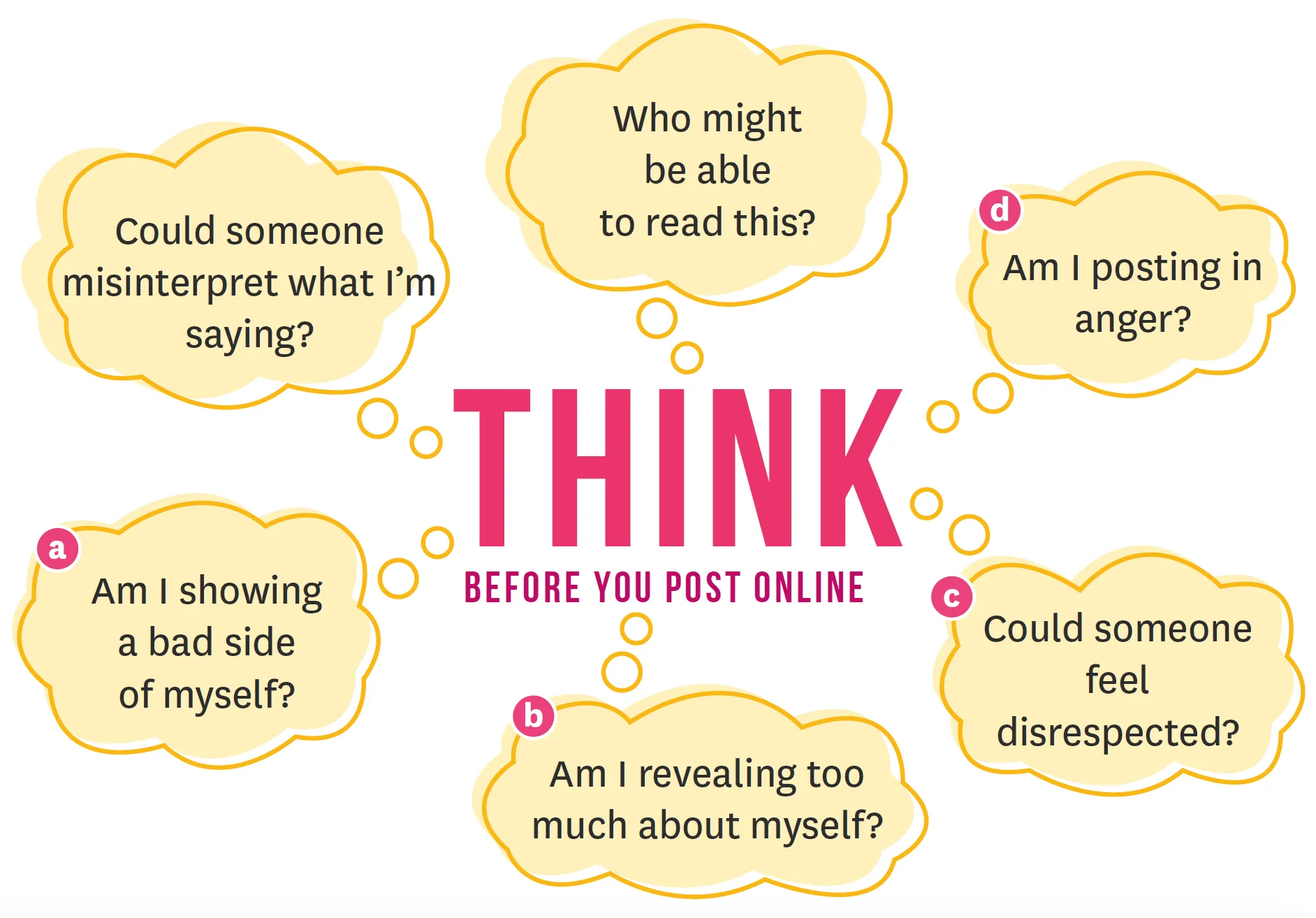Ressource affichée de l'autre côté.
Faites défiler pour voir la suite.
Faites défiler pour voir la suite.
1. Safer Internet Day is organised by WWF each year.
2. The objective is to promote online technology and mobile phones.
3. Safer Internet Day is organised to help children to use their mobile phones responsibly.
2. The objective is to promote online technology and mobile phones.
3. Safer Internet Day is organised to help children to use their mobile phones responsibly.
Ressource affichée de l'autre côté.
Faites défiler pour voir la suite.
Faites défiler pour voir la suite.
1Protect yourself
Ressource affichée de l'autre côté.
Faites défiler pour voir la suite.
Faites défiler pour voir la suite.
Activities
1. For each sentence, pick out the nouns, the pronouns and the verbs.


2. Match the English word with its definition.
3.


| Nouns | Pronouns | Verbs |
|
|
|
|
|
|
|
|
|
|
|
|
|
|
|
|
2. Match the English word with its definition.
| being capable of | |
| not a good aspect | |
| not respecting people | |
| feeling furious | |
| not understanding something correctly |
3.
Pair work
Rephrase the ⓐ, ⓑ, ⓒ, ⓓ questions into recommendations.Tip
We should always... We shouldn't… Think about…
Ressource affichée de l'autre côté.
Faites défiler pour voir la suite.
Faites défiler pour voir la suite.
Ressource affichée de l'autre côté.
Faites défiler pour voir la suite.
Faites défiler pour voir la suite.
2Once upon a time on Facebook
Ressource affichée de l'autre côté.
Faites défiler pour voir la suite.
Faites défiler pour voir la suite.
Activities
1. Name the different elements on the picture.


2. Now, watch the video. Name the main characters.
Little Red Riding Mood (Youtube), Funmoods' Online Safety Kit, 2011.








3. Pick the information the wolf got about the girl reading her profile.
4.


a
b
c
d
e
f
g
Webcam
Mouse
Keyboard
Desk chair
Speaker
Hood
Computer screen
2. Now, watch the video. Name the main characters.
Little Red Riding Mood (Youtube), Funmoods' Online Safety Kit, 2011.


a


b


c


d
3. Pick the information the wolf got about the girl reading her profile.
4.
Group work
What's the message at the end of the video? What does it mean?Tip
The message is... We think... The video is powerful...
Ressource affichée de l'autre côté.
Faites défiler pour voir la suite.
Faites défiler pour voir la suite.
Ressource affichée de l'autre côté.
Faites défiler pour voir la suite.
Faites défiler pour voir la suite.
3Beware of the Internet
Ressource affichée de l'autre côté.
Faites défiler pour voir la suite.
Faites défiler pour voir la suite.
Activities
1. Read the text. Then, fill with the correct answers.
a) This document is (a survey / a quiz / an article).
b) The source is (Figures / ikeepsafe.org / unknown).
c) Who is this document for? (Teenagers only / Adults / Both).
2. Read the results from the survey and tick the correct answer. Then, underline three dangers teenagers may face on the Internet.
a) Teenagers spend (13.5 / 19) hours on the web per week.
b) (50% / 99%) of teenagers have already received requests for personal information (phishing).
c) (50% / 30%) of teenagers have already talked with a cyber-stranger.
d) (20% / 17%) of teenagers have already received sexual solicitation.
e) Dangers face on the Internet:, and .
3. Answer the following questions at the end of the text.
a) Have you ever accepted a friend request from someone you didn't know? ➝ .
b) Have you ever been bullied on a social network? ➝.
Did you know that 99% of teenagers use the Internet? Teenagers from 13 to 19 years old spend more than thirteen hours and a half on average on the web! More than half of these teens have received requests for personal information and the same number of children frequently have private conversations with strangers through instant messaging. 30% report that they have talked with a cyber-stranger about meeting in person. Can you believe that a quarter of teenagers discovered that someone they met online was an adult pretending to be much younger? And one in five children (aged 10 to 17) has already received a sexual solicitation!
What about you? Have you ever accepted a friend request from someone you didn't know? Have you ever talked with strangers in a chat room or via instant messaging? Have you ever been bullied on a social network? Have you ever discovered that you were in fact talking to an adult?
What about you? Have you ever accepted a friend request from someone you didn't know? Have you ever talked with strangers in a chat room or via instant messaging? Have you ever been bullied on a social network? Have you ever discovered that you were in fact talking to an adult?
a) This document is
b) The source is
c) Who is this document for?
2. Read the results from the survey and tick the correct answer. Then, underline three dangers teenagers may face on the Internet.
a) Teenagers spend
b)
c)
d)
e) Dangers face on the Internet:
3. Answer the following questions at the end of the text.
Tip
I have often / already / never / only once...
b) Have you ever been bullied on a social network? ➝
Ressource affichée de l'autre côté.
Faites défiler pour voir la suite.
Faites défiler pour voir la suite.
La prononciation de « th »
Listen
Listen: Have you ever talked with a cyber-stranger through instant messaging?
Réfléchis : a) Dans le mot with, le son « th » est-il prononcé ou ?
b) Dans le mot through, le son « th » est-il prononcé ou ?
Repeat
Répète : I'm thinking of three thousand three hundred and thirty-three things!
Ressource affichée de l'autre côté.
Faites défiler pour voir la suite.
Faites défiler pour voir la suite.
Le présent HAVE + V-en
Observe : Have you ever accepted a friend request from someone you didn't know? They have already talked with a stranger.Réfléchis : Repère l'auxiliaire et le verbe. Les phrases parlent-elles d'évènements passés ou d'expériences possibles ?
Conclus : Le présent HAVE + V-en se construit avec :
Ressource affichée de l'autre côté.
Faites défiler pour voir la suite.
Faites défiler pour voir la suite.
Mission 2
1. Your mission consists in (several answers possible)...
2. You have to...
3. Choose your level:
2. You have to...
3. Choose your level:
Une erreur sur la page ? Une idée à proposer ?
Nos manuels sont collaboratifs, n'hésitez pas à nous en faire part.
j'ai une idée !
Oups, une coquille


